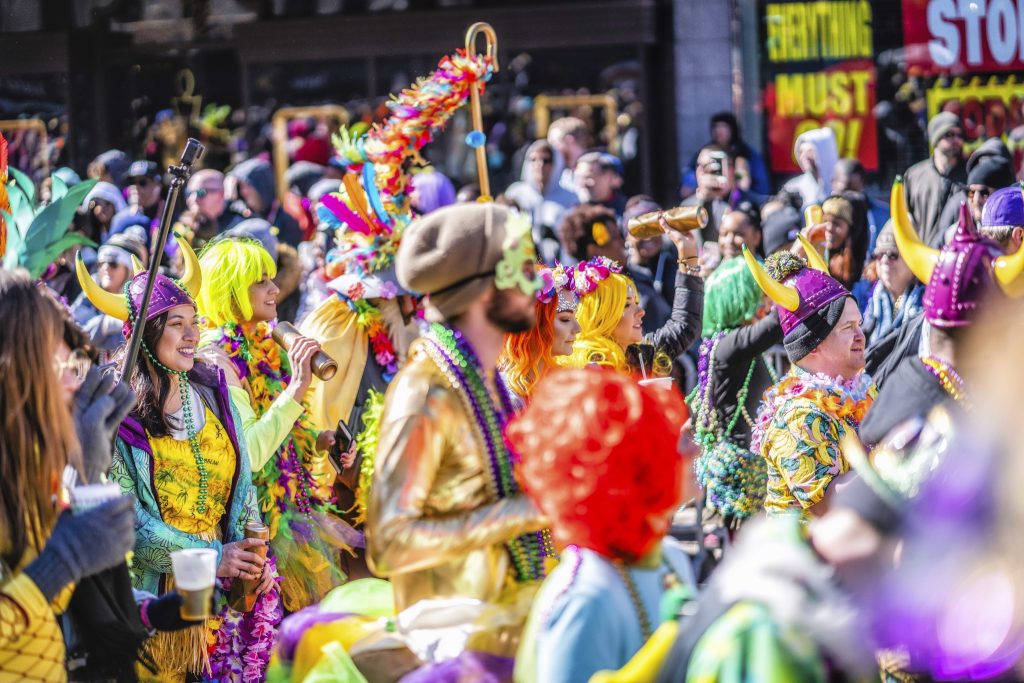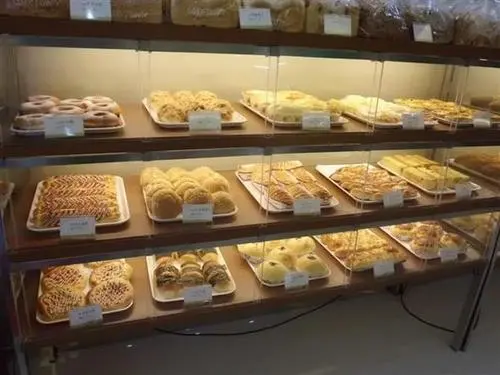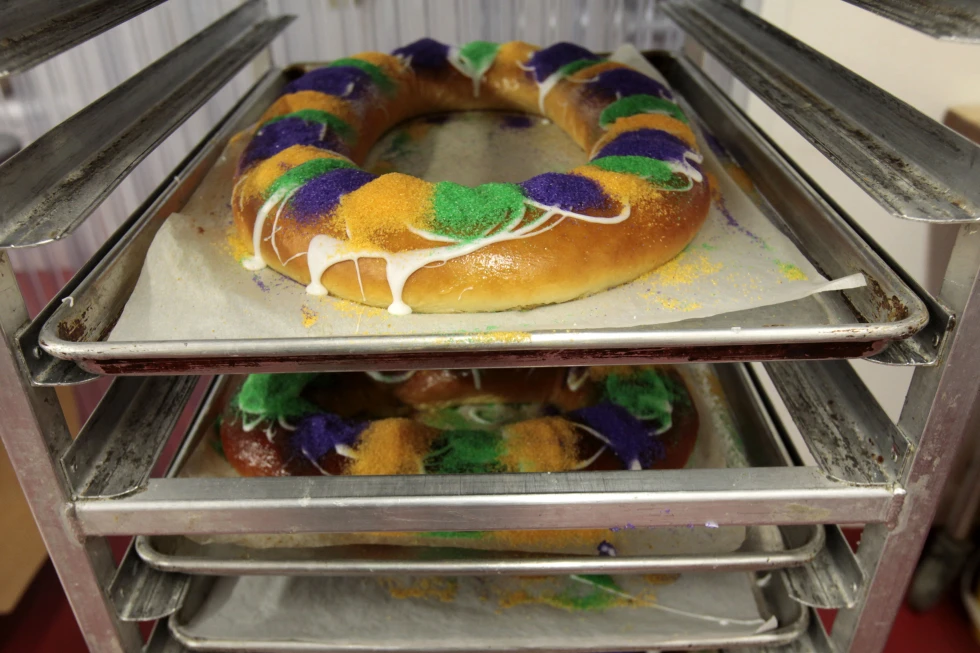The vibrant, spirited celebration of Mardi Gras in New Orleans is synonymous with a variety of traditions, but none is quite as iconic as the king cake.
Adorned with the symbolic colors of purple, gold, and green, and often containing a hidden toy baby, these delectable confections have become a hallmark of the Carnival season.
However, in a surprising turn of events, it appears that these beloved king cakes have garnered an unexpected form of attention—being the target of theft.
In a recent incident that has captured the attention of both locals and the wider public, a daring thief made off with not just one, but seven king cakes from a renowned New Orleans bakery.
The audacious heist, which occurred during the height of Carnival season, also saw the perpetrator absconding with a case of vodka and a sum of cash from the premises of Bittersweet Confections, leaving both the bakery and the community in disbelief.
The brazen nature of this crime has sparked a mixture of bemusement and concern, prompting both the New Orleans Police Department and the bakery itself to respond to the incident.
In a statement, the bakery expressed a wry sense of pride, humorously attributing the theft to the irresistible allure of their king cakes, while also issuing a plea for customers to support their establishment through legitimate means.
Meanwhile, the authorities have launched an investigation, seeking to apprehend the culprit and restore a sense of security to the local community.
The theft of these king cakes serves as a poignant reminder of the cultural significance and widespread adoration that these confections hold within the fabric of New Orleans’ rich tapestry.
Beyond their delectable taste and vibrant appearance, king cakes embody a sense of tradition, community, and festivity that is deeply intertwined with the spirit of Mardi Gras.
As such, the theft not only represents a violation of property, but also a symbolic affront to the cherished customs and values that the king cake represents.
This incident has ignited a fervent dialogue within the community, prompting discussions on the enduring appeal of king cakes and the lengths to which individuals may go to obtain them.
It has also underscored the unique and treasured role that these cakes play in the collective consciousness of New Orleans, serving as a poignant testament to the enduring legacy of Mardi Gras and its associated traditions.

In the wake of this unprecedented theft, it is imperative to reflect on the deeper implications that this incident holds.
The theft of the king cakes serves as a sobering reminder of the need to safeguard and preserve the cultural heritage and traditions that define the identity of New Orleans.
It prompts us to consider the broader significance of these age-old customs and the responsibility that each member of the community bears in upholding and cherishing them.
Moreover, the incident underscores the resilience and unity of the New Orleans community, as evidenced by the outpouring of support and solidarity in the aftermath of the theft.
From expressions of empathy and concern to a renewed sense of appreciation for the local bakery and its offerings, the response to this incident has showcased the unwavering spirit of the city and its inhabitants in the face of adversity.
As the investigation into this unusual crime unfolds, it is crucial to maintain a sense of perspective and resilience.
While the theft of these king cakes may have momentarily disrupted the celebratory atmosphere of Mardi Gras, it has also served as a catalyst for a reaffirmation of the values and traditions that define New Orleans.
Through this incident, the community has been presented with an opportunity to reaffirm its commitment to preserving the essence of Mardi Gras and the cherished customs that accompany it.
In conclusion, the theft of the king cakes from a New Orleans bakery has captured the imagination of the public, sparking a dialogue on the enduring allure and cultural significance of these beloved confections.
It has prompted a collective reflection on the values, traditions, and resilience of the New Orleans community, serving as a poignant reminder of the need to safeguard and uphold the cherished customs that define the city’s identity.
As the investigation unfolds and the community rallies in support, this incident stands as a testament to the enduring spirit of Mardi Gras and the unyielding unity of the people of New Orleans.
The celebration of Carnival in New Orleans, although secular in nature, is deeply intertwined with Christian and Roman Catholic customs, a tradition that is mirrored in various other parts of the world.
Commencing on January 6th, the twelfth day following Christmas, the Carnival season extends until Mardi Gras, commonly referred to as Fat Tuesday, which marks the culmination of feasting, indulgence, and revelry before the onset of Ash Wednesday and the ensuing period of fasting associated with Lent.

Among the emblematic foods synonymous with Carnival in New Orleans are the renowned king cakes, characterized by their circular pastry adorned with purple, green, and gold sugar or icing, often concealing a small plastic baby within as a token.
In a lighthearted response to a bakery’s social media post, a witty individual humorously claimed responsibility for the theft, jesting that he was holding seven babies hostage until he received a lifetime supply of king cakes annually.
